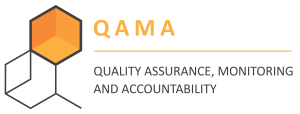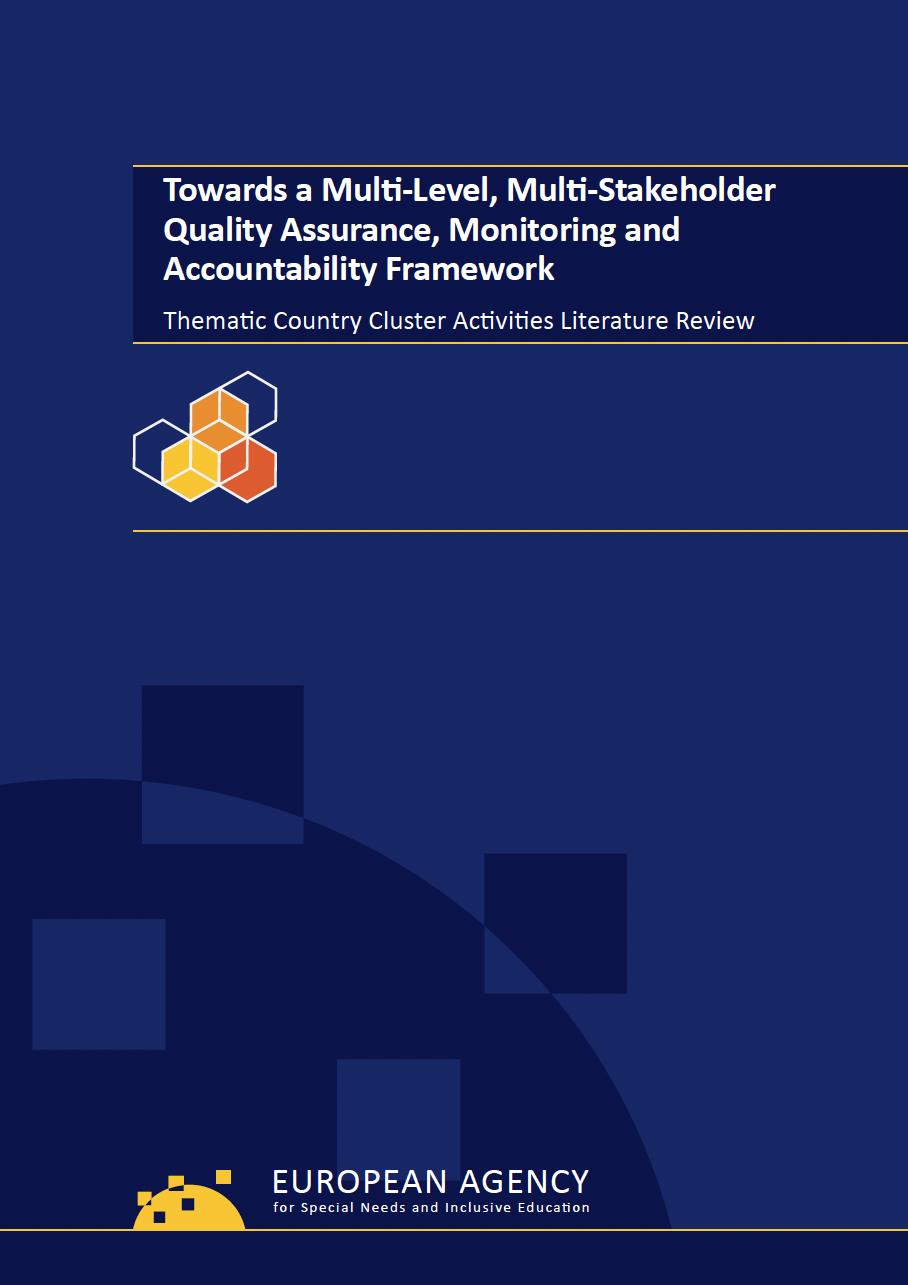As education systems become more complex, each country needs a unified framework for quality assurance, monitoring and accountability. The Quality Assurance, Monitoring and Accountability (QAMA) activity aims to identify the essential elements of a coherent framework that brings all aspects of an education system together. This will help to align different areas of quality assurance with the agreed principles of inclusive education and the goal of continuous improvement.
In many countries, monitoring and accountability units work independently of policy analysis. Disparity may also occur at regional and local levels, due to differences in data collection.
A multi-level, multi-stakeholder framework enables a systematic approach, combining data from all education system sectors to provide a complete picture of system and school development. A coherent framework clearly states and communicates goals, procedures, measures and expected outcomes across the education system.
This activity is one of six within EASNIE’s Thematic Country Cluster Activities (TCCA). Each activity involves collaboration between a small group, or cluster, of EASNIE member countries. QAMA is Cluster 6. TCCA focuses on member countries’ priorities and addresses country requests for more tailored activities to support policy development needs and build upon learning points from other EASNIE activities. The clusters aim to support countries in their efforts to promote continuous improvement for all stakeholders across the whole inclusive education system. For more information, visit the TCCA web area.
Activity framework
The TCCA Literature Review indicates that many countries lack coherent approaches to monitoring, quality assurance and accountability. It also shows that few countries can map information against their future objectives or evaluate the impact of educational reforms.
The EASNIE Key Principles underline the importance of a comprehensive quality assurance and accountability framework for monitoring, review and evaluation. This framework should support high-quality provision for all learners, with equitable opportunities for those at risk of marginalisation or exclusion. In addition, Country System Mapping shows that many EASNIE member countries have yet to develop and implement coherent systems for monitoring, evaluation, quality assurance and accountability.
The TCCA Literature Review identifies stakeholder agreement on the underlying values and principles of inclusive education as the essential starting point for developing policy and practice for monitoring, quality assurance and accountability. The form and content of a framework, and criteria to ensure its effectiveness, are also key.
The TCCA Literature Review’s working model for a framework serves as the starting point for the QAMA activity.
Participants and target group
The QAMA cluster countries are Austria, Belgium (Flemish community), Greece, Italy, Spain and United Kingdom (Northern Ireland).
As the QAMA cluster countries represent a wide geographic range and highly diverse education systems, they offer each other a richness of information and knowledge. This diversity will inform the development of the QAMA framework, which will be adaptable to the needs of the EASNIE member countries’ different education and governance systems.
The QAMA activities and outputs are mainly aimed at national-level decision-makers. However, they also target stakeholders across all education levels, who help to ensure that quality assurance, monitoring and accountability processes include the voices of all who design, deliver, teach and learn in inclusive education systems. QAMA cluster countries may use the activities to identify specific groups of stakeholders within their own systems for consultation or expertise.
Aims
The QAMA activities explore the topic of developing a multi-level, multi-stakeholder quality assurance and accountability framework for inclusive education.
The overall aim is to enable and support countries to collaborate through peer-learning approaches and review their current quality assurance and accountability provision and frameworks.
A second aim is to work towards developing a single multi-stakeholder quality assurance and accountability framework, bringing all education system areas together under one guiding principle. This will enable countries to develop a process of continuous improvement towards a more inclusive education system.
QAMA also aims to offer its cluster countries a working example of peer learning and collaboration. They may carry this forward as a means of engaging with stakeholders from different sectors within their countries and education systems, as they continue to address different aspects of monitoring, accountability and quality assurance after QAMA ends.
Activities and outputs
Phase 1 of QAMA (2024) explored the essential elements of a multi-stakeholder quality assurance and accountability framework, as defined in the TCCA Literature Review. It assessed countries’ current implementation and effectiveness, and identified gaps and barriers. The phase also considered the necessary processes to establish common goals and indicators among different stakeholders, and the ways in which countries can collaborate to share knowledge and develop approaches that are adaptable to various education systems.
During a peer-learning activity (PLA) in Madrid, participating countries reflected upon and discussed these main aspects:
- Individual country progress in quality assurance, monitoring and accountability processes, identifying gaps or areas of challenge for future development.
- Similarities between the QAMA countries in their approaches to challenges, or examples of effective processes.
- The next steps needed to bring current processes together into a single framework.
- The phase 2 workplan.
Phase 2 (2025) has focused on more practical aspects of the processes underpinning the development of a system-wide framework for quality assurance, monitoring and accountability. During the second PLA, in Antwerp in April 2025, more detailed work on issues around school improvement was undertaken, with further online work to explore data collection, analysis and use, and cross-sector and cross-level collaboration. The QAMA countries continue to work collaboratively on the structure and presentation of the framework, to improve its clarity and adaptability to different systems and contexts.
A third PLA is planned to take place in Belfast in November 2025.
Planned outputs from QAMA include:
- a framework for multi-level, multi-stakeholder quality assurance, monitoring and accountability;
- guidelines for using and adapting the framework to different systems;
- a video on the collection and use of data in inclusive education.


